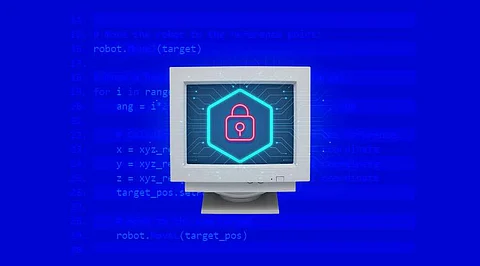

Confidential computing is a technology that gives data security from unauthorized access, even when it is being processed, or cloud data security. This technology has been around since 2004, but it has not gained much popularity until recently. What are the reasons for this sudden surge of interest? Some people may think that it is because of the increasing demand for cybersecurity tools, which is partly true. However, there are also new opportunities and business capabilities that are enabled by confidential computing, which makes it more attractive and valuable.
Traditional computing systems are often exposed to the risk of attacks from insiders or outsiders, who may try to access or tamper with the data that is being processed or stored. This can compromise the confidentiality and integrity of sensitive data, such as intellectual property, trade secrets, financial data, and personal information.
Confidential computing is a technology that enables organizations to protect their most valuable assets by creating a trusted computing environment, such as a public cloud, where the data can be processed securely without being revealed to anyone who is not authorized to access it. Confidential computing prevents unauthorized access, ensuring that the data remains confidential, even if the computing infrastructure is breached.
Confidential computing not only protects the data but also the process algorithms that are used to manipulate the data. Securing the code and data is a way to defend against cyber threats such as malware and insider attacks. Therefore, confidential computing is an essential part of the triad of security, privacy, and trust. Confidential computing relies on a combination of hardware and software-based mechanisms to achieve its goals.
Confidential computing technology has become more popular recently for two main reasons:
The rapid adoption of public cloud and the rise of remote edge environments: These are both environments that are generally considered less secure, as they expose the data to the risk of being accessed by the cloud providers or by attackers who may compromise the edge devices. Confidential computing can provide an extra layer of protection for the data, by creating a trusted computing environment where the data can be processed securely without being revealed to anyone who is not authorized to access it.
The growing ease of use: Confidential computing has become more accessible and user-friendly for today's software developers, as the complexities and challenges of implementing it have been abstracted and simplified by various tools and platforms. These tools and platforms enable confidential computing to run smoothly in public and private clouds and at the edge, by providing features such as secure execution environments, image creation, storage, and deployment, runtime and remote attestation, and isolation of multiple virtual machines.
Confidential computing is a technology that protects data from unauthorized access, even when it is being processed or stored in the cloud. This technology has a wide range of applications and benefits for various industries that deal with sensitive information, such as health care, financial services, and insurance. Confidential computing can not only secure data but also code and the inner workings of entire applications. This can help organizations to protect their intellectual property and their competitive advantage, as well as their data privacy. Confidential computing can enable organizations to use the cloud without fear of losing a key component of their offering to a competitor or a hacker.
Confidential computing is a technology that protects data from unauthorized access, even when it is being processed or stored in the cloud. This technology is not only useful for ensuring confidentiality in public computing environments but also for enhancing security and privacy at the edge. Edge computing is a paradigm that involves processing data closer to the source, such as sensors, devices, or users, rather than sending it to a central server or cloud. Edge computing has evolved from simple data collection to more sophisticated and interactive data processing and analysis. Edge computing can offer benefits such as lower latency, higher bandwidth, and better user experience.
However, edge computing also poses challenges for security, as edge devices may be more vulnerable to attacks from hackers or insiders who may try to access or tamper with the data. Therefore, edge computing requires all aspects of the security triad: confidentiality, integrity, and availability. Confidential computing can help to achieve confidentiality at the edge, by creating a trusted computing environment where the data can be processed securely without being revealed to anyone who is not authorized to access it.
Join our WhatsApp Channel to get the latest news, exclusives and videos on WhatsApp
_____________
Disclaimer: Analytics Insight does not provide financial advice or guidance. Also note that the cryptocurrencies mentioned/listed on the website could potentially be scams, i.e. designed to induce you to invest financial resources that may be lost forever and not be recoverable once investments are made. You are responsible for conducting your own research (DYOR) before making any investments. Read more here.
